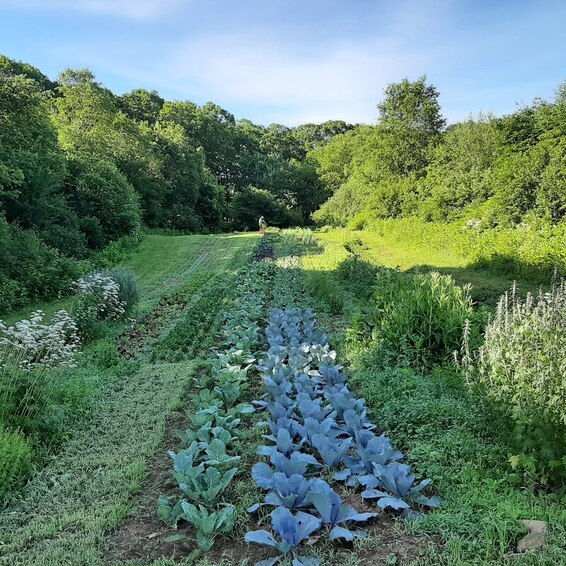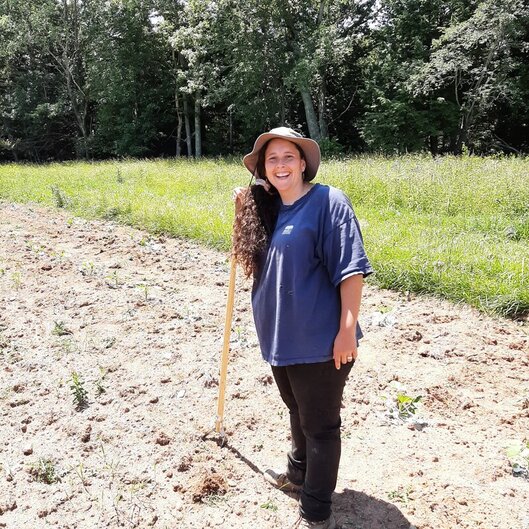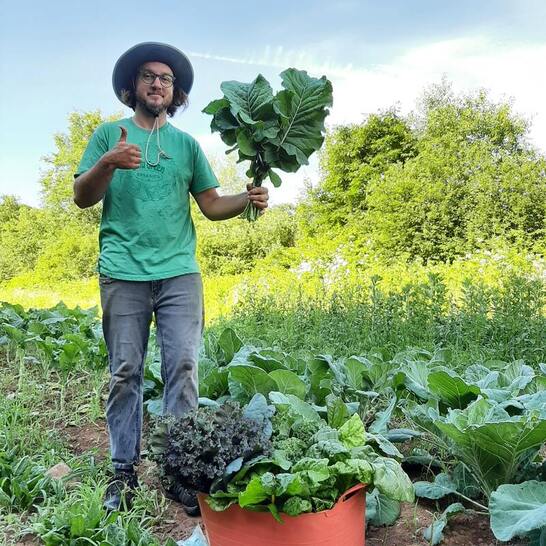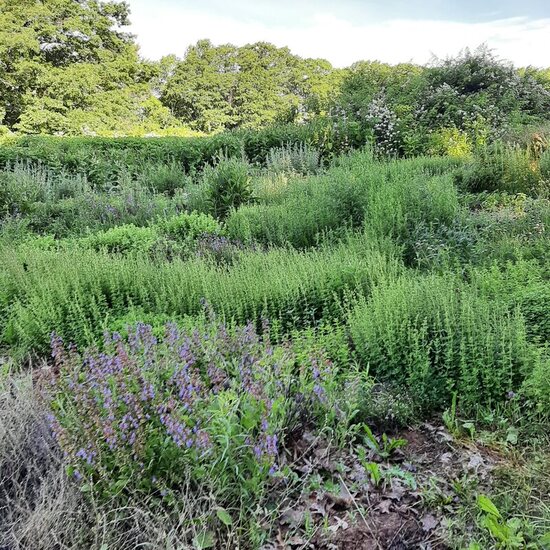|
What is Sustainability? Sustainability is always on our minds here on the farm, it influences everything we do and informs all our decisions. But what does it really mean? It basically means to be able to keep doing what you’re doing, to “sustain” it, and for that you need balance. For balance you always need to be reevaluating, checking in, questioning and looking at the results of your actions. It is no question that the way the majority of people live in industrialized countries is not sustainable, we are taking too much from nature, we are not in balance. In living in an industrialized country like Canada, it is almost impossible to not be part of that “taking too much” culture, and any small ways of trying to be more sustainable can seem futile and discouraging in the face of all that’s going wrong. I want to encourage you to realize that the only thing that is truly futile is not trying at all - any little thing we do has an impact, however small, because our individual actions make up the actions of the world. So please realize that your actions matter, and you should feel good about whatever you are able to do in your particular life and set of circumstances. When I try to figure out what is sustainable for farming I picture a future without industrialization. In this future I would not have access to any products made by industry. What could I do with what I already have? I can make hay from the fields of grass, this can be used for mulching around vegetables instead of plastic. There’s lots of weeds that I can make a compost tea with for fertilizer. I have some vegetable plants flowering, I can leave them to produce seeds which I can then save and use to grow next year's crop. I can do more care for the plants by hand, not depending on diesel to run a tractor. I can use old logs and leaves from the woods to make a hugelkultur bed. I can do pest control by hand instead of depending on pesticides, and I can leave natural habitats close to the veggie garden to encourage predatory insects and animals to feed on those pests. You see the point, what can we do with what we already have? This is the point of sustainability to me, to always be looking at how we can use things that are produced by or available in nature to be able to “sustain” the way we farm and this includes sustaining nature so it can continue to provide those things (and also simply because it has a right to exist as much as we do). There’s a Mi’kmaq word that I learned recently - Netukulimk, which sums it up really well: “it is about achieving community nutrition and economic well-being without jeopardizing our environment. Mi’Kmaq resource management unites people with the plants, animals and the environment as a whole”. Though we are nowhere near as sustainable as the original people of Mi’kma’ki or Nova Scotia, we do try to take into account how any and all of our actions will impact the environment around us and how it will impact future generations who may live on this land, and we are always trying to do better within our personal set of circumstances. This is definitely a hugely complex issue, and while we do all of these things on our farm, we also do things that are not sustainable in this future without industrialization. We use a tractor which uses diesel, we deliver our veggies with a car which uses gas, we communicate to potential customers using cell phones and computers which use rare earth minerals that must be mined, we use greenhouse plastic, plastic pots and trays which are made from gas and oil, and we use potting mix which is made from peat moss. All of these things are unsustainable in the long run - there is a finite amount of oil, peat moss, and rare earth minerals in the world. The sad truth is that it is next to impossible to be 100% sustainable as a farmer today and still make enough money to keep going. Does that mean we shouldn’t try to be sustainable? Not at all! Like I said above, every little action towards sustainability is worthwhile, the only thing that is futile is not trying.
Most farmland in North America is farmed very unsustainably - huge monocultures, dangerous pesticides, chemical fertlizers, heavy machinery, undocumented farm workers paid below minimum wage, overworked soil with little organic matter and microbial life, …the list goes on. There are a small amount of farmers who are trying to farm sustainably, usually on a smaller scale and there is more interest in these farms by the year as people look for ways to support a sustainable future. Ecologically-minded farms take different approaches with sustainability, because it is true that there is no one clear answer that is the best approach, each approach comes with potential drawbacks and issues. Covering the soil with plastic cuts down on weeding and protects the soil from drying out which kills microbial life, however plastic itself is not a sustainable resource, it excludes certain insects and wildlife from the area and it can break down into the soil in the form of microplastics. Using organic pesticides such as in organic farming is better and less harmful than synthetic pesticides but can still harm certain beneficial insects such as honeybees, native bees and predatory beetles. Growing veggies indoors uses less space and can use less pesticides but is way more dependent on industrial products such as grow lights, hydroponic systems, electricity for heat, chemical fertilizers etc and these things take a lot of energy to produce. These are just a couple examples I can think of right now, but the point I want to make is that there are many different ways farms are trying to be sustainable and we should encourage the march towards sustainability in any way farmers are attempting it, because we are all in this together. There is so much to say about this subject and sometimes it’s hard to pin point exactly what people need to know… if anyone reading this has any questions or thoughts please don’t hesitate to ask us, maybe you will spark another blog post! The more we all talk about the problems we face the more solutions can be found. I wanted to write this not because I think I have all the answers but because I want to get people questioning, thinking and talking about it. Thank you for reading. *Oh, I forgot the most important thing that I wanted to say, I wanted to give you a future to picture that is sustainable. Take all the people that feel stuck in poverty, on unemployment, working minimum wage jobs that they hate, or really anyone at all who’s interested and get them working on farms. This might sound like a strange suggestion in today's world but it is only very recently in humanity’s history that most of the population doesn’t live and work on farms. Today farmers make up 2% of Canada’s population. If you look back through the ancestry of your family line you will likely see “occupation: farmer” many, many times. More people doing the physical work of growing food equals less energy usage and puts less pressure on our environment. Farming gets people out in the sun doing physical work that really matters, this is good for their mental, emotional and physical states. When you grow something you can literally see the fruits of your labour, it is there on the tree in front of you. There’s no living in abstraction, everything is what it is. I truly believe that so many of the problems of society would be solved if more people were farming. So why don’t they? They need to make enough to survive. With the increased interest in local foods in recent years there are more and more people getting into farming and starting small scale farms, we need to sustain this and keep it going. There are lots of people who would love to work on farms or have their own if they could make a decent living, how can we make this happen? I’ll leave you with that question, and also this thought- if a global event happens and we are not able to grow and ship food with gas and oil, we will be completely dependent on local farms for food and the people that know how to farm sustainably.
0 Comments
|
AuthorOlde Furrow Farmers!! Archives
March 2024
Categories |




 RSS Feed
RSS Feed